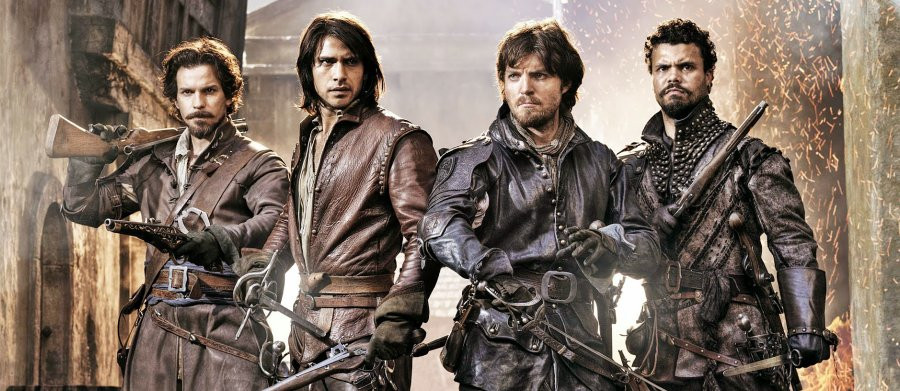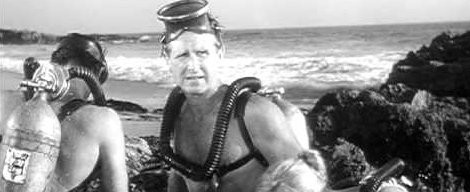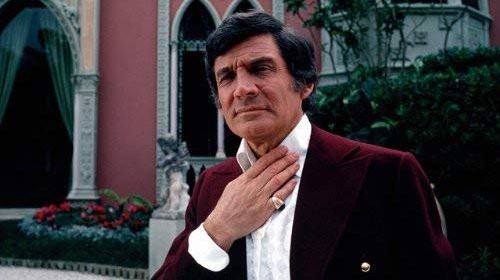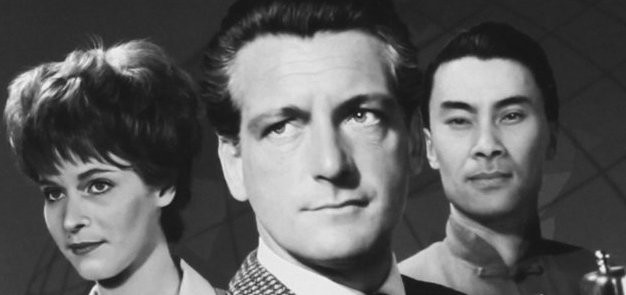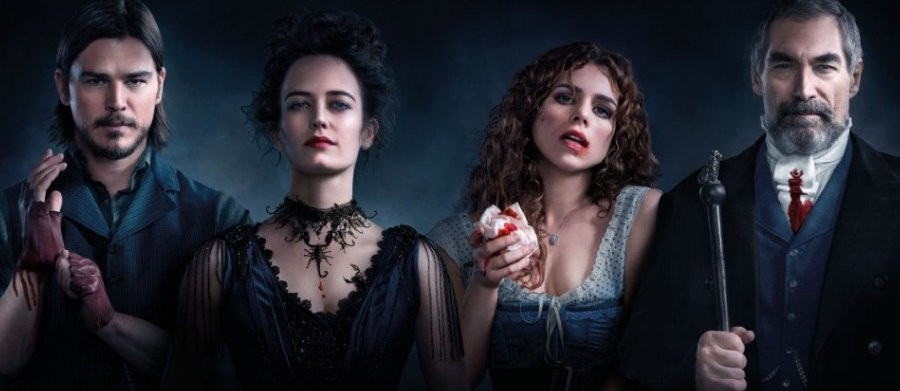
The Last Ship
2014 - United StatesReview - JWR
The Great Secret of writing fantasy or science fiction is have a strong, clear premise that makes the fictional world different from the one in which we currently appear to live, and to make everything else around it as realistic and familiar as possible to show its effect on characters to whom the reader or viewer can relate.
This principle is turned on its head in The Last Ship, which starts with a premise that is all too credible, and follows it up with others that are also increasingly conceivable, but then makes everything else unrealistic to the point of absurd.
The first premise is that a pandemic wipes out most of the world's population. Since this review is being written during the - far less devastating - coronavirus pandemic of 2020, it might be expected that The Last Ship should be praised for its foresight in drawing attention to an issue that was, when it was made, only an abstract possibility but is now a definite reality.
In the event, the opposite is true. While The Last Ship was indeed prescient about the dangers of pandemic, it got everything else spectacularly wrong. Even when it was first shown, there was much about it that seemed very unlikely both generally and within the context of its own premise, and events have now confirmed that.

Above all, we have seen how disruptive a pandemic can be when even the most pessimistic forecasts, at the time of writing, predict a fatality rate of less than 1% of the global population, probably a great deal less. Yet The Last Ship slaughters 80% of the global population with little in the way of visible disruption - or social and psychological impact. Everything seems to get back to normal very quickly, and by the fifth season everyone is enjoying American upper middle class lifestyles as they do today - or rather as fairly wealthy Americans do today.
As with most Hollywood "post-Apocalyptic" films and television shows, it is positively disconcerting how everyone, even in the immediate aftermath of the "Apocalyptic" event, is obviously clean, healthy, well dressed, well fed, and disproportionately good looking in general - like Hollywood extras, in fact. There is no serious consideration of the effects of the probable total collapse of food production, supply chains, utilities, health services, penal systems, and communications. It is the most orderly complete breakdown of civilisation imaginable.
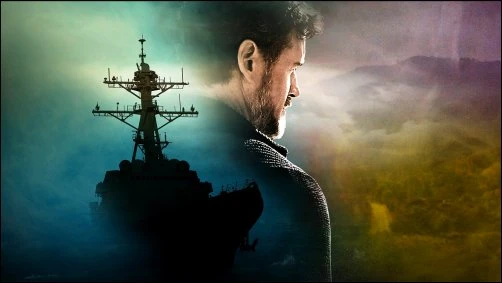
Even on the 'USS Nathan James,' the titular Last Ship, whose preservation of military order is contrasted with the breakdown of the rest of the world, nothing would be as clean and neat as it is presented. Part of the premise is that 'Nathan James' has been out of contact at sea for months on a special mission and so has escaped the pandemic. Yet everything is still pristine and there are no visible signs of shortages, despite us being told that it has to pick up "supplies," which it does with little more inconvenience than going to a supermarket. When news of the pandemic finally gets through, military discipline is maintained in spite of the hierarchy of which the crew was a part having ceased to exist.
It is all rather too easy and convenient - and that is just Item One in a very, very long list of absurdities that follow. It is true that there also some good ideas. Once the initial pandemic is cured, rather magically by a scientist on the 'Nathan James,' there are other credible threats, including a famine due to a genetic mutation, a computer virus that destroys the integrated IT system on which the American military apparently still depends, the establishment of local tyrannies and attempts to undermine the re-establishment of central government, and the rediscovery of eugenics by those who had a natural immunity from the pandemic.
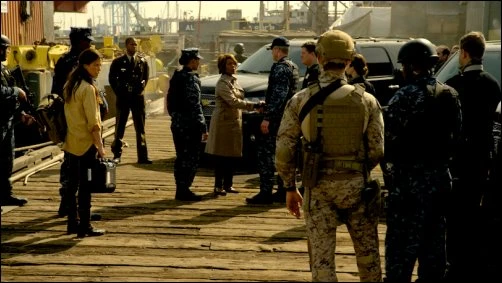
However, all these promising plotlines are drowned in a sea of silliness. We have four-star admirals leading commando teams in person on a regular basis, Americans despatching multiple foreign opponents with little difficulty, a global hero living unrecognised in Europe - where, in middle age, he turns out to be a legendary mixed martial arts fighter while still living unrecognised in Europe...
There is no space for the whole list. Indeed, life is too short. It could be argued that this is no worse than James T Kirk and the starship 'Enterprise' - on whom Admiral Tom Chandler, the 'Nathan James,' and the format of the show seem to be modelled - regularly saving the Universe single handed. However, The Last Ship is meant to be set on Earth, and the disconnection between the credibility of some of the basic concepts and the lack of credibility of the way in which they were handled is irritating. A lot of good opportunities are wasted.
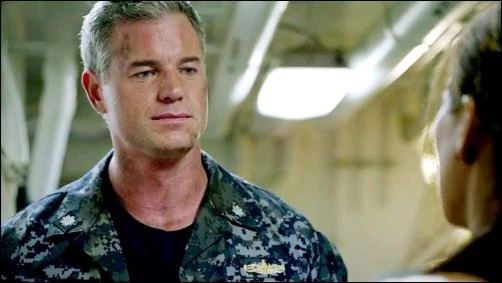
All that having been said, it you happen to like first-person shooter video games or the films of Michael Bay or the novels of Tom Clancy or the political philosophy of Donald Trump - four separate categories which, one suspects, often overlap - then you might well consider The Last Shipas an artistic and cultural achievement on a par with Michelangelo's Sistine frescoes.
Bay is an executive producer of the show, and his influence is everywhere. It is loud, bombastic, fanatically pro-American - and, it must also be said, fast paced, exciting, visually stylish, well produced, and entertaining so long as one does not stop to think about it.
The same is true of most of Bay's feature films. Indeed, The Last Ship even replicates the one good sequence of Bay's execrable feature film 'Pearl Harbor' (sic) fairly closely, on a small scale, at the start of the fifth season. Say what you want about Bay, he is a skilled visual director who knows how to use light, colour, and movement to command attention to the screen. Some of the imagery in The Last Ship is actually quite beautiful, especially the seascapes and some of the location work in the fourth season. The action sequences are sharp and the set pieces often positively cinematic. While some of the CGI looks obvious, most fits in neatly with some impressive live action footage so that you cannot see the joins unless you are looking.
Although Bay does not direct himself, he put together a team of episode directors which, unusually, seems to have more familiar names than the cast list, including Jonathan Mostow, Jack Bender, and actors Tim Matheson, Mario Van Peebles, and Peter Weller.

This is to be expected because, again unusually for television, The Last Ship is more a director's show than an actor's, or writer's, piece. The cast deliver what is required of them, but, frankly, that is not much. There is a nice little joke in the fifth season about the hero, Admiral Tom Chandler, played by Eric Dane, encountering a life size cardboard cut out of himself, but, truth to tell, it cuts a bit close to home. Adam Baldwin, usually very effective in borderline psychopath roles, is given relatively little to do as Chandler's loyal second in command, which is another wasted opportunity. Rhona Mitra added class as an unlikely scientist but was probably only too glad to leave at the end of the second season. John Pyper-Ferguson provides welcome relief from all the hierarchy as an amiable mercenary.

The best performances come from Brian F O'Byrne and - in front of the camera as well as behind it - Peter Weller as seasonal recurring villains. While it is predictable that the Award laden O'Byrne steals his season, it might be a surprise to those who know Weller only as Robocop, and are unfamiliar with some of his great work in other projects, to see how good he is here. Elisabeth Rohm and Sibylla Deen also manage to bring some depth to shallow villainess roles.
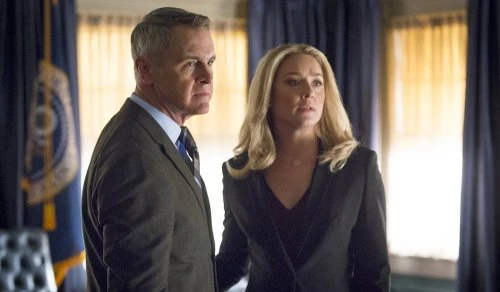
Bay has cultivated good connections with the US armed forces and seems to have called in a lot of favours to give The Last Ship an epic look beyond the reach of most television budgets. In return, he gave them a 56-episode recruiting film for the US Navy - even if it could equally serve as a recruiting film for the Viet Cong, because its uncritical attitude towards a certain view of America's role in the world might make those who do not share it more than a little queasy.
For the most unusual thing of all about The Last Ship is its politics. Hollywood, dominated by people on the other side of the spectrum, tends to apply the label "right wing" to anything that is not overtly left wing, but if "right wing" is equated with American nationalism and militarism, then The Last Ship really is. Although it sometimes nods in the other direction, it never forgets that most of its target market voted differently from most of its makers.
A drinking game in which someone had to take a shot whenever the Stars and Stripes appears on The Last Ship would not last long. While much of the gung-ho patriotism is simply laughable, some bits leave a nasty taste. Characters we are supposed to like kill a lot of people who pose no immediate threat. Murder? War crimes? No, it seems Americans get a free pass.
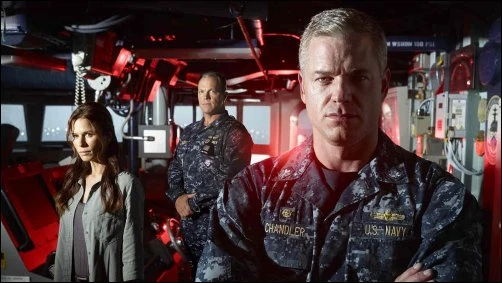
Russians are the enemy in the first season, Brits in the second, Chinese in the third, Greeks in the fourth, and Colombians in the fifth. It reads like a list of America's Favourite Stereotype Villains - except for the strange inclusion of the Greeks: one can only assume that someone in the production had Turkish connections.
This consistently arrogant attitude towards foreigners limits the sympathy of the non-American viewer, even one who is in general very positively inclined towards Americans - and, indeed, any American viewer who does not share the show's world view - which undermines the emotional impact of scenes that might otherwise be quite powerful. A show which had a lot of clever ideas and, in some other respects, its heart in the right place, is spoilt as a result.
Seen this show? How do you rate it?
Seen this show? How do you rate it?
Published on May 18th, 2020. Written by John Winterson Richards for Television Heaven.



